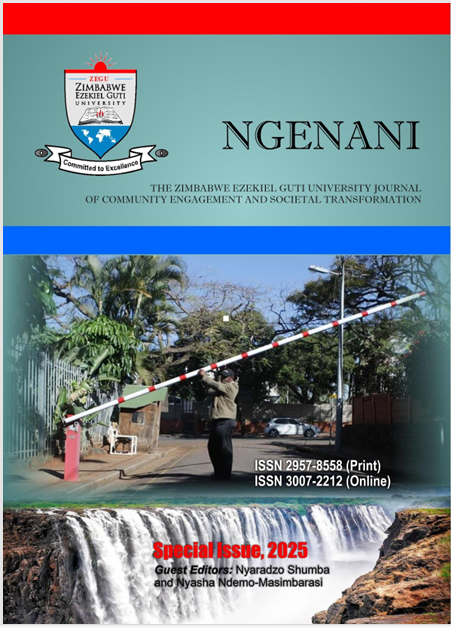Trends and Dynamics of Urban Informality in the Global South: Urban Women Refugees and Locals in Harare Compared
DOI:
https://doi.org/10.71458/awdwb002Keywords:
human security, informal economy, the Global South, downtown areas, survivalism, participationAbstract
Arguably, informality has become the new norm in Zimbabwe, similar to most countries in the Global South. The absolute conventional wisdom that adversely defines informality is slowly becoming obsolete and continues to be challenged as the sector has become the crux upon which human security of urbanites is swivelled. Zimbabwe’s constantly expanding informal economy continues to accommodate various demographic groups with a wide range of backgrounds. Consequently, this study is a response to the theoretical lacuna and scant empirical evidence on a comparative assessment of groups’ informal involvement in the Global South. This study investigates and compares the participation of female refugees living in urban regions with their counterparts from the local community in Zimbabwe's informal economy. Based on a qualitative epistemological approach that uses in-depth interviews and documentary analysis as collection methods, the study utilises Harare, namely the downtown areas, as the unit of analysis. The study compares urban women refugees to their local counterparts in four areas: types of activities, the consequences of informality on survival, the challenges that each group faces and their politics of survival. The research concludes with policy directions to advance women’s participation in the informal economy of urban Harare.




